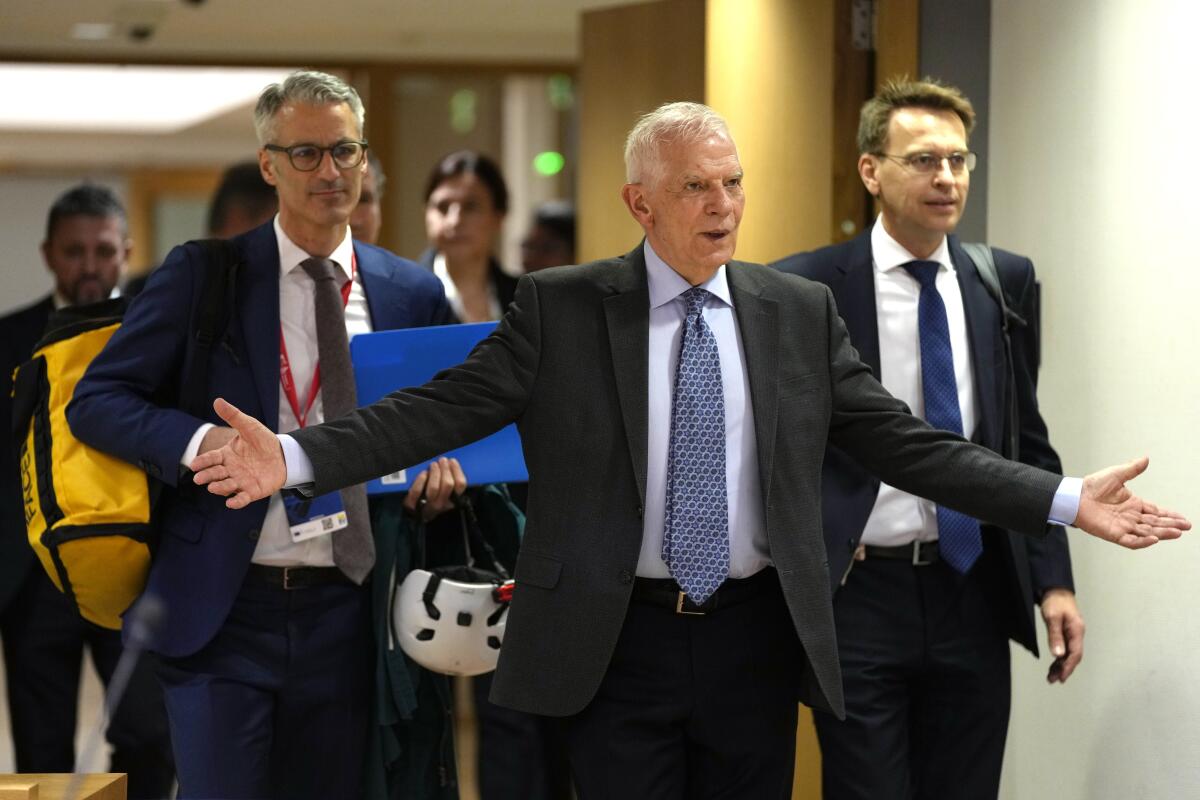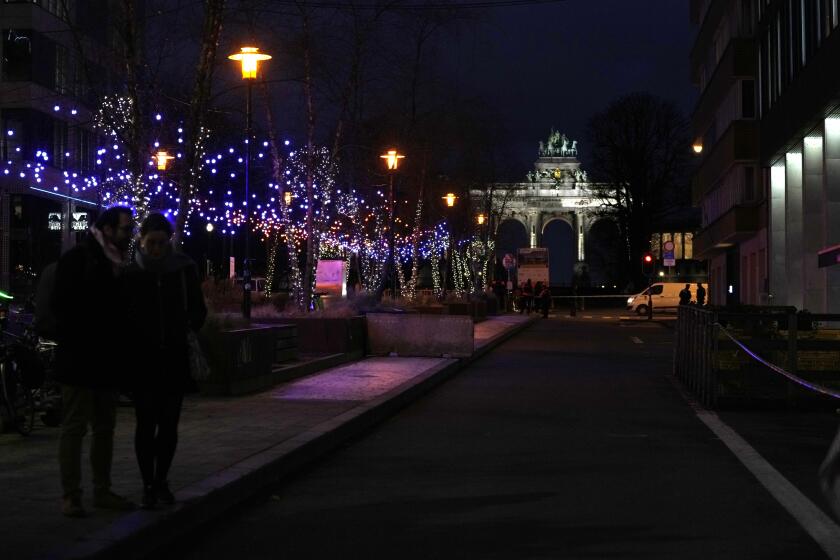European Union pushes ahead with a plan to buy weapons for Ukraine with frozen Russian asset profits

- Share via
BRUSSELS — The European Union is pressing ahead with a plan to use the profits generated from billions of euros of Russian assets frozen in Europe to help provide weapons and other funds for Ukraine, a senior official said Tuesday.
EU foreign policy chief Josep Borrell got a green light for the plan from most of the bloc’s foreign ministers this week, and he hopes that EU leaders will endorse it at a summit in Brussels starting on Thursday. The move comes as Ukraine runs dangerously low on munitions, and U.S. efforts to get new funds for weapons have stalled in Congress.
The 27-nation EU is holding around 200 billion euros ($217 billion) in Russian central bank assets, most of it frozen in Belgium, in retaliation for Moscow’s war against Ukraine. The bloc estimates that the interest on that money could provide around 3 billion euros ($3.3 billion) each year.
“The Russians will not be very happy. The amount of money, 3 billion per year, is not extraordinary, but it is not negligible,” Borrell told reporters.
A small group of member countries, notably Hungary, refuse to supply weapons to Ukraine, so these windfall profits would be divided up. Around 90% of the money would be put into a special fund that many EU countries already use to get reimbursed for arms and ammunition they send.
The European Union has decided to open membership negotiations with Ukraine and Moldova, despite Hungarian leader’s opposition.
The other 10% would be put into the EU budget to help bolster Ukraine’s defense industry. Countries that object to sending weapons could then claim that they are not arming the country, Borrell said.
The EU budget can’t be used to buy arms, under current expert interpretations of the bloc’s treaties, but the special fund — known as the European Peace Facility — runs off-budget and doesn’t have to respect the same legal standards or be approved by the European Parliament.
The European Central Bank has warned in the past against seizing Russian assets as this could undermine confidence in the euro currency and EU markets. But Borrell said that no assets would be taken, only the windfall profits they make. He added that the bank has been consulted on the plan.
Some EU leaders, including Belgian Prime Minister Alexander De Croo, have said that they want to use the windfall profits to fund Ukraine’s reconstruction, but Borrell said he believes that “the best thing is to avoid that anything is destroyed” in the first place.
Cook writes for the Associated Press.
More to Read
Sign up for Essential California
The most important California stories and recommendations in your inbox every morning.
You may occasionally receive promotional content from the Los Angeles Times.











